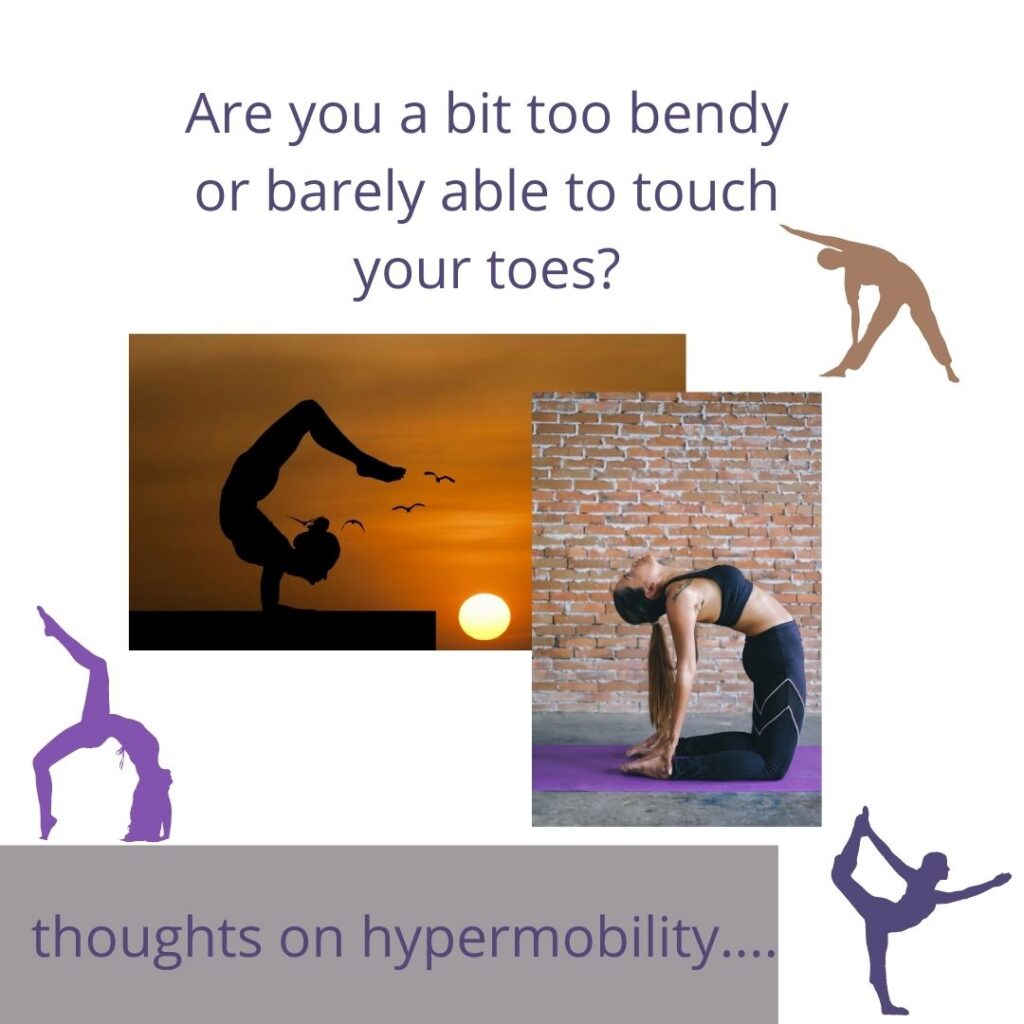To feel great in your own skin – you don’t have to be in pain to want to learn AT. Improving your relationship with your body brings about other positive changes. If you can love your body, you’re a lot less likely to want to fill it with poisons or ignore its little messages to you (those grumbles, aches, and pains). We take care of the things we love. Starting to improve your body awareness is the start of the journey to love yourself.
Get the internal space back in your body – if you’re squeezing your body with muscular tension and/or habitually falling into a collapsed posture, you’ve lost your internal space. Trying to hold yourself up against years of habitual collapse is like holding back the tide, but learning to change the postural habits of a lifetime is the start of getting back that internal support and space. You don’t hold yourself up, your body supports you. Doesn’t it?
Improves all movement based activities ……….. Improves all non-movement based activities – it doesn’t matter if you’re lying on the sofa, standing in a queue, or running in a marathon. The “way” you’re using your body is the same if it’s born out of unconscious habits. So, learning to become aware of how you use your body, then learning to become more skilful at that, will improve EVERYTHING that you do.
Be in charge of your own body – as my wise little nana got older she said “It’s wonderful Gemma! When my hip is starting to get stiff and tighten up, I can do something about it”. In those last 10 years of her life (from when she started her AT lessons at 84), whilst so much of life was becoming a struggle and more and more out of her control, SHE was still in control of her “use” and of her own body. What a gift!
Be in charge of your own pain relief – ok, so this isn’t on tap opiates, it’s not like that. And if we’re being honest here, pain is an area where science is still very much working on understanding it, especially chronic pain. What we’ve got available to us at the moment is ways to manage the pain and the skills within the Alexander Technique are invaluable for this.
Why wouldn’t you learn the Alexander Technique?
You think it’s someone else’s job to fix you – whilst many people can help you find wellness again, the ultimate responsibility for your body lies with you. When you learn the AT you learn to look after yourself in a totally unique way, it’s a skill of self-mastery, a skill for life. However, if you’re the person who wants to change nothing about your life and would rather have a fairy godmother with a magic wand to take away your problems, then this isn’t for you.
You like living in a body that feels 20yrs older than it is – I’m going to make a really bold statement now “the Alexander Technique keeps your body feeling young”. There’s a big and shocking illusion that our world is selling to you. It’s that the older you get the more decrepit you become. Whilst in some areas you might need a bit more assistance, glasses perhaps or maybe a hearing aid, when it comes to your body feeling good, upright and mobile all you need is a little awareness, time and skill to continue improving as you get older.
It takes up too much of your precious time – yes, it’s an investment in yourself, but we know investments take time to mature. Honestly! What else are you doing that’s more important than your own self-care? Step away from the remote control and practice some Constructive Rest.
You think that getting older is why you can’t stand up straight anymore – the reason your posture has changed over the years isn’t “old age”, it’s because your inappropriate muscular tension has gotten in the way of your marvellous postural mechanism – the support system within you that keeps you upright. You can get this back again, with patience and learning.
You don’t want to be the one flexible enough to paint the ceiling (FYI totally valid reason) – however, that probably means you’re not flexible enough to get on the floor to play with your grandchildren or get down and dirty in the garden (translate that however you like!) Freedom in movement is a delight; the lightness we feel when our body supports itself and the feeling of being safely balanced as we navigate uneven ground – it’s all there for the taking, with just a little investment in yourself.

